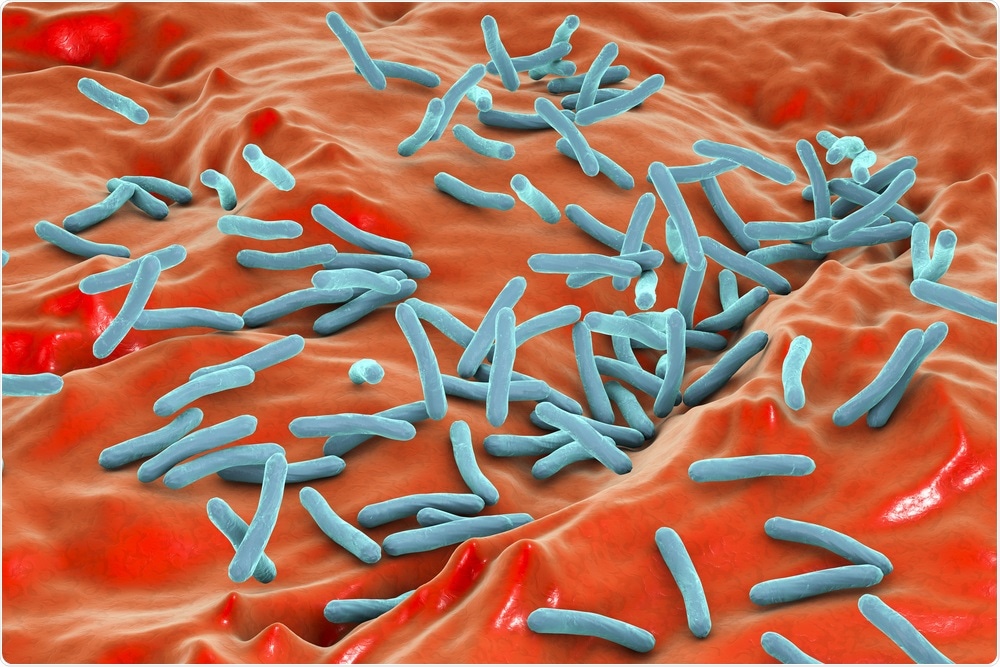The BCG (Bacillus Calmette–Guérin) vaccine is given intradermally and has variable efficacy against pulmonary tuberculosis, a highly contagious disease that is responsible for about 1.5 million deaths in 2018 across the globe. Now, a team of scientists has found a new route for the vaccine to be administered – injecting it directly into the blood (intravenous).
The study, which was recently published in the journal Nature, revealed that delivering the vaccine directly into the bloodstream, rather than intradermally or under the skin, led to near-total protection in a group of macaques.
The team of scientists from the U.S. National Institute of Allergy and Infectious Diseases and the University of Pittsburgh School found that delivering a high dose of the vaccine intravenously greatly improves the drug’s ability to protect against the deadly disease.

Image Credit: Kateryna Kon / Shutterstock.com
"The effects were amazing"
The researchers administered the vaccine under the skin, through an aerosol, or intravenously, in groups of monkeys. They evaluated the immune response of the animals after 24 weeks and found that the most effective responders were those who received the intravenous vaccine.
Six months after administering the vaccine, the team exposed the monkeys to a virulent and potent strain of Mycobacterium tuberculosis, the causative agent of pulmonary tuberculosis (PTB). The findings of the study show that nine out of 10 monkeys who received the intravenous vaccine were highly protected, while six out of 10 monkeys showed no infection at all.
Further, three of the monkeys had only very low counts of the bacteria in the lung tissue. Meanwhile, all unvaccinated monkeys and those who received the vaccine through the skin or aerosol showed signs of greater infection.
The vaccine prevented tuberculosis in 90 percent of the monkeys. One of the most interesting results shows that six out of 10 monkeys injected with the vaccine intravenously never developed an initial infection when they were exposed to Mycobacterium tuberculosis.
The effects are amazing. When we compared the lungs of animals given the vaccine intravenously versus the standard route, we saw a 100,000-fold reduction in bacterial burden. Nine out of 10 animals showed no inflammation in their lungs.”
Dr. JoAnne Flynn, Professor of Microbiology & Molecular Genetics, The Pitt Center for Vaccine Research
What is the BCG vaccine?
The BCG vaccine has been around for about a century and it’s one of the most widely used vaccines in the world. The vaccine is usually given a few days after birth until six months of age. The idea of administering the vaccine intravenously stemmed from previous studies by a co-author, Dr. Robert Seder at the NIAID’s Vaccine Research Center. He showed that in both animals and humans, the malaria vaccine is more effective when injected directly into the bloodstream.
The BCG vaccine works by preventing the development of the disease, but it does not prevent infection with the bacteria. It is designed to prevent TB in children, which is highly contagious and potentially fatal.
Globally, about 10 million people developed TB disease in 2017, but most of the infections occurred in adults. People with diseases that suppress the immune system, such as HIV, are at a higher risk of contracting tuberculosis.
Tuberculosis is one of the top 10 leading causes of mortality or death worldwide, and the leading cause of a single infectious agent, the World Health Organization (WHO) reports. Millions of people continue to develop the infection every year.
Journal reference:
Darrah, P., Zeppa, J., Maiello, P., and Seder, R. et. al. (2019). Prevention of tuberculosis in macaques after intravenous BCG immunization. Nature. https://www.nature.com/articles/s41586-019-1817-8